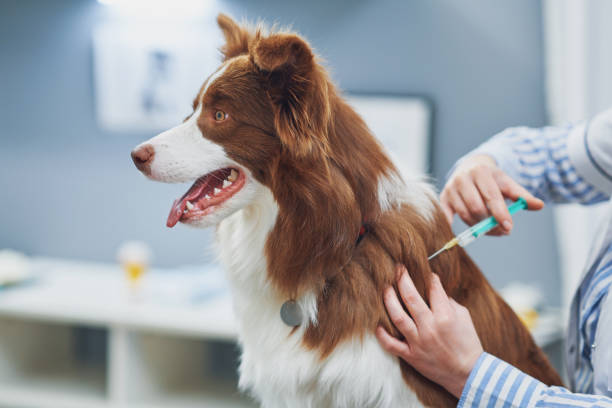
Pet vaccinations are a crucial part of keeping your pet healthy and preventing a variety of serious, often life-threatening diseases. Vaccines work by stimulating the immune system to recognize and fight off specific pathogens (like viruses and bacteria). Here’s a breakdown of what pet vaccinations are and why they’re important.
What are Pet Vaccinations?
Pet vaccinations are medical treatments that help protect animals from infectious diseases. Vaccines usually contain a weakened or inactivated form of a pathogen, which triggers an immune response without causing illness. This “training” allows the pet’s immune system to recognize and fight off the actual disease if the pet is ever exposed.
Types of Vaccinations
Vaccinations can be classified into two main categories:
- Core Vaccines: These are essential for all pets, regardless of their lifestyle or environment. Core vaccines protect against diseases that are common, highly contagious, and can be fatal.
- For Dogs:
- Rabies: A fatal viral infection that affects the nervous system. It is typically required by law.
- Distemper: A viral disease that affects the respiratory, gastrointestinal, and nervous systems.
- Parvovirus: A highly contagious and often fatal viral infection that primarily affects puppies.
- Adenovirus (Canine Hepatitis): A viral infection that affects the liver and other organs.
- For Cats:
- Rabies: A fatal disease that affects the nervous system, required by law in many places.
- Feline Herpesvirus (FVR): A respiratory virus that can cause severe upper respiratory infections.
- Feline Calicivirus (FCV): Another respiratory virus that can cause upper respiratory infections and mouth ulcers.
- Feline Panleukopenia (FPV): Also known as feline distemper, this virus affects the immune system and is often fatal.
- For Dogs:
- Non-Core Vaccines: These are recommended based on your pet’s risk factors, such as their lifestyle, environment, and where you live. For example, if your pet goes outside, travels frequently, or has contact with other animals, they may need additional vaccines.
- For Dogs:
- Leptospirosis: A bacterial infection that can cause kidney and liver damage. It’s particularly important for dogs in areas where the disease is prevalent.
- Bordetella (Kennel Cough): A highly contagious bacterial infection that causes coughing, typically spread in places like dog kennels, parks, or daycare.
- Lyme Disease: Caused by ticks, this disease can affect joints, kidneys, and the heart.
- For Cats:
- Feline Leukemia Virus (FeLV): A virus that weakens the immune system and can cause cancer.
- Chlamydia Psittaci: A bacterial infection that can lead to eye and respiratory issues.
- Feline Immunodeficiency Virus (FIV): A viral infection that weakens the immune system, similar to HIV in humans.
- For Dogs:
Why Are Pet Vaccinations Important?
- Disease Prevention: Vaccines protect your pet from contagious and dangerous diseases, some of which can be fatal. They also prevent the spread of diseases to other pets.
- Public Health Protection: Some diseases, like rabies, can be transmitted from pets to humans, so vaccinating pets helps protect both animals and people.
- Cost-Effective: Preventing disease through vaccination is much more cost-effective than treating a pet that becomes sick. Some diseases can require expensive treatments or lead to long-term health problems.
- Legal Requirements: Some vaccinations, particularly rabies, are required by law in many areas. Failing to vaccinate your pet can result in fines or legal complications.
- Promoting Longevity: Vaccinated pets are less likely to suffer from life-threatening diseases, which can increase their quality of life and lifespan.
Vaccination Schedule
Vaccination schedules vary depending on the pet’s age, health, and risk factors. Generally, puppies and kittens receive their initial vaccinations at 6-8 weeks of age, followed by booster shots every few weeks until they’re around 16 weeks old. After that, they typically need booster shots annually or every three years, depending on the vaccine and local regulations.
Side Effects and Risks
While vaccinations are generally safe, pets can sometimes experience mild side effects, such as:
- Lethargy
- Soreness at the injection site
- Mild fever
Severe reactions, such as allergic responses, are rare but can happen. If your pet shows any signs of distress after a vaccination, like difficulty breathing or swelling, contact your veterinarian immediately.
Final Thoughts
Vaccinations are a cornerstone of preventive healthcare for pets. They are a simple and effective way to protect your pet from serious diseases and ensure they live a long, healthy life. Always consult with your veterinarian about the appropriate vaccination schedule and options for your specific pet, as they can offer personalized recommendations based on your pet’s breed, age, and environment.
Pet Care is an essential part of Pet Parenting. To Book an Appointment for Vaccination at Home:

